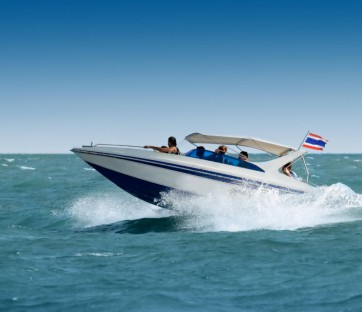Boat Battery Basics
Power - by Jessica Carey - updated on 3/8/2013
Although boating is considered to be a hobby, there is A LOT to know about it and taking care of your own vessel is a huge responsibility. In addition to storage, cleaning and overall maintenance, as a boater, you also have to keep a strict eye on your boat's battery. Your boat's battery is the heart of your craft and requires year-long maintenance. To keep your boat going strong the entire season, take a look at these boat battery tips.
Choose the right battery.
Marine batteries come in different types and chemistries. They are purpose-built and their internal structure will reflect their use – starter, deep-cycle, or dual-purpose batteries – and their limitations. Make sure you are selecting the right battery for your craft.
Stay with one battery chemistry (flooded, gel, or AGM) for all of the batteries on your boat. Each battery type requires specific charging voltages. Mixing battery types can result in under- or overcharging – either of which can be fatal to your battery. Gel batteries require a lower charge rate than flooded or AGM.
Disconnect your battery when it's not in use.
Many people think that turning off their boat motor stops the drain on the marine battery. However, this may not be the case. There may be small things in your boat – like clocks or other small appliances – that, if left plugged in, will continue to drain your battery. Prevent this by disconnecting your battery when your boat is not in use.
Keep an eye on your battery's water level.
A flooded battery needs a water top-off every so often. Don't let the battery's water level get too low or it will shorten the life of your battery. Maintain the water levels after charging, as the levels rise when charging and could overflow.

Recharge your battery immediately after use.
Never allow a partially drained battery to sit for any period of time. Leaving batteries in a discharged state will cause sulfide damage and lower their capacity. Even if you are planning on using the battery again soon, recharging it will keep you from ending up out in the water where recharging is not an option.
Don't over-discharge.
While an over-discharged battery can often still be recharged, it will shorten the number of discharge cycles your battery can tolerate and can seriously shorten your battery's life.
Don't overcharge.
Overcharging your battery is even worse and can do more damage than over discharging your battery. When you overcharge your battery, you cause the acid inside to boil or percolate, which can cause your battery to crack, ruining the battery completely.
Don't let your battery sit too long between uses.
Marine batteries work best when the charge is maintained. Batteries are meant to be used and allowing them to sit for a long period of time will cause them to lose part of their charge. If you must let your battery sit, be sure to give it a charge every few months to keep your battery in the best shape possible.
Whether it is for a speed boat, trolling motor, depth finder or fish locator, Batteries Plus has the prefect marine battery to meet your needs. We offer fully-sealed AGM and flooded-type 12 volt batteries in deep cycle, dual purpose and starting formats.
And remember, we're social, so follow us!
View this article for more information about marine battery tips.

